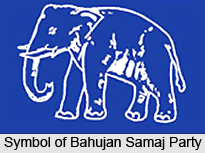 The Indian political state of affairs has an overabundance of political parties. India has a multiparty system, which can be broadly divided into two categories- the National Parties and the regional parties. National parties usually are those that are recognised in four or more states and the Election Commission of India accords this status to them. This recognition adds a new dimension to the political parties. Some recognized political parties in India are:
The Indian political state of affairs has an overabundance of political parties. India has a multiparty system, which can be broadly divided into two categories- the National Parties and the regional parties. National parties usually are those that are recognised in four or more states and the Election Commission of India accords this status to them. This recognition adds a new dimension to the political parties. Some recognized political parties in India are:
Bahujan Samaj Party--- The Bahujan Samaj party is mainly based in Uttar Pradesh, with an elephant as their party symbol.
Bharatiya Janata Party --- Bharatiya Janata Party (BJP) was established in 1980. This political party is considered the major centre-right Indian political party.
All India Forward Bloc --- All India Forward Bloc was established in 1939 as a faction led by Subhas Chandra Bose within the Indian National Congress with the ideology of Socialism in the Indian context.
All India Trinamool Congress --- All India Trinamool Congress was founded in 1998. At that time it was known as West Bengal Trinamool Congress, (WBTC). It is led by Mamata Banerjee.
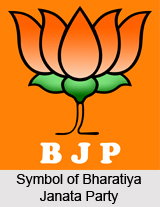 Communist Party of India (CPI) --- It was said that the Communist Party of India (CPI) was founded in Tashkent on October 17, 1920. However the foundation day as they celebrate, falls on 26 December, 1925.
Communist Party of India (CPI) --- It was said that the Communist Party of India (CPI) was founded in Tashkent on October 17, 1920. However the foundation day as they celebrate, falls on 26 December, 1925.
Communist Party of India (Marxist)--- Communist Party of India (Marxist) is an Indian political party, which has its strong presence in the states of Kerala, West Bengal and Tripura. The party emerged from a split from the Communist Party of India that occurred in 1964.
Indian National Congress --- The Indian National Congress became the nation`s most dominant political party after the Indian independence in 1947. The party presently serves in the house under the 14th Lok Sabha (2004-2009).
Nationalist Congress Party --- Nationalist Congress Party was formed on May 25, 1999 under the leadership of Sharad Pawar, P.A. Sangma, and Tariq Anwar.
All India Anna Dravida Munnetra Kazhagam (AIADMK)--- At present the All India Anna Dravida Munnetra Kazhagam is headed by J. Jayalalithaa. Royapettah in Chennai is the party headquarters.
Communist Party of India (Marxist-Leninist) Liberation --- The Communist Party of India (Marxist-Leninist) was established in 1969. The party was formed by the All India Coordination Committee of Communist Revolutionaries.
Dravida Munnetra Kazhagam --- Dravida Munnetra Kazhagam is a regional political party founded by C. N. Annadurai as a breakaway faction from the Dravidar Kazhagam headed by Periyar. Dravida Munnetra Kazhagam is a political party prominent in the state of Tamil Nadu.
Indian Union Muslim League ---Indian Union Muslim League is regarded as a Muslim nationalist political party in India. The IUML is mainly based in north Kerala.
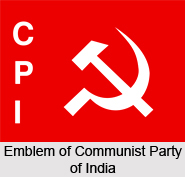 Indian National Lok Dal ---Indian National Lok Dal is a Haryana based political party in India. The post of the party president is adorned by Om Prakash Chautala and Ajay Singh Chautala adorns the post of Secretary General.
Indian National Lok Dal ---Indian National Lok Dal is a Haryana based political party in India. The post of the party president is adorned by Om Prakash Chautala and Ajay Singh Chautala adorns the post of Secretary General.
Indigenous Nationalist Party of Twipra --- It is a political party active in Tripura. The Indigenous Nationalist Party of Twipra is the resultant of a merger with the Indigenous Peoples Front of Tripura and the Tripura Upajati Juba Samiti in 2002.
Jammu and Kashmir National Conference --- The Jammu and Kashmir National Conference dominated electoral politics in the state, and was led by the Sheikh`s son Farooq Abdullah and is presently led by his son Omar Abdullah.
Janata Dal (Secular) ---The Janata Dal (Secular) is very active politically mainly in Karnataka. The Janata Dal (Secular) has its roots in the Janata Party organised by Jayprakash Narayan, which was formed under one banner and united all anti-Indira Gandhi parties for the 1977 national elections.
Janata Dal (United) --- The new Janata Dal (United) was formed after a merger with the erstwhile Janata Dal (United) and the Samata Party on October 30, 2003. These two parties became the united force of Bihar as opposed to the Rashtriya Janata Dal.
Maharashtrawadi Gomantak Party --- The Maharashtrawadi Gomantak Party concentrates mainly on non-Brahmin Hindus, which is the largest section of the Goan society. Dayanand Bandodkar was the first chief minister of the party.
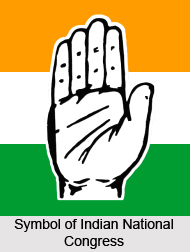
Mizo National Front --- The Mizo National Famine Front was formed with the aim to help the destitutes who were suffering from the severe Mautam Famine in Mizoram. After the famine, the front changed into the Mizo National Front (MNF) on October 22, 1961.
Revolutionary Socialist Party --- The Revolutionary Socialist Party was formed out of the Bengali liberation movement Anushilan Samiti and the Hindustan Socialist Republican Army. During the 1930s, a significant faction of the Anushilan movement was influenced by the Marxist concepts.
Samajwadi Party --- The Samajwadi Party was founded on October 4, 1992. This party is considered one amongst the many parties that emerged out of the Janata Dal (People`s Party), India`s primary opposition party prior to the BJP was fragmented into several regional parties.
Shiromani Akali Dal --- Shiromani Akali Dal was established on 13th December 1920. Shiromani Akali Dal is a Sikh political party based in Punjab, India.
Shiv Sena --- Shiv Sena is regarded as a nationalist political party in India founded on June 19, 1966 by Bal Thackeray, a Hindu nationalist, Marathi ethnocentric and a populist party active person.
Telangana Rashtra Samithi --- Telangana Rashtra Samithi has the principal agenda of separating the region of Telangana from Andhra Pradesh. Chandrashekhar Rao, after stepping down from the Telugu Desam Party in 2001, formed the Telangana Rashtha Samithi.
Telugu Desam Party --- The Telugu Desam Party was founded by N.T. Rama Rao on March 29, 1982. TDP is considered the first political party in India that issued a Vision 2020 document.
Arunachal Congress --- Arunachal Congress was founded in September 1996 as a splinter-group of the Indian National Congress. It is a regional political party in Arunachal Pradesh.
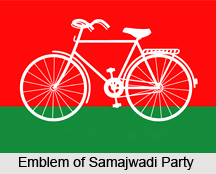 Pattali Makkal Katchi --- The Pattali Makkal Katchi party was founded by the present president of the party, Dr. S. Ramdoss in 1999. The majority membership of the party comprises the Vanniar caste, an OBC community.
Pattali Makkal Katchi --- The Pattali Makkal Katchi party was founded by the present president of the party, Dr. S. Ramdoss in 1999. The majority membership of the party comprises the Vanniar caste, an OBC community.
Uttarakhand Kranti Dal --- The Uttarakhand Kranti Dal was established in 1979 with the aim of fighting for a separate state compiling the hill districts of Uttar Pradesh.The UKD since its formation focussed on the causes of social justice, related to the Uttarakhand region of the Himalayas.
All India Majlis-e-Ittehadul Muslimen --- All India Majlis-e-Ittehadul Muslimen was founded in 1927 as a pro-Nizam party. Bahadur Yar Jung and Maulana Abul Hasan Syed Ali were the founding members of the party.
Jammu and Kashmir People`s Democratic Party --- Jammu and Kashmir People`s Democratic Party is a regional political party founded in 1999 under the leadership of the former Union Home Minister, Mufti Mohammed Sayeed.
Janathipathiya Samrakshana Samithy --- In 1994, the Janathipathiya Samrakshana Samithy was formed under the leadership of K.R. Gowri Amma. Before forming the party, Gowri Amma was a member of the Communist Party of India (Marxist).
Jharkhand Mukti Morcha --- The Jharkhand Mukti Morcha aimed at liberalisation of Jharkhand. The basic ideology of the party is Regionalism. Jharkhand Mukti Morcha is a regional political party of Jharkhand and Orissa.
Kerala Congress --- The Kerala Congress is a regio-political party based in Kerala. The party was formed under the leadership of K M George, from Vazhakulam, Muvattupuzha.
Lok Jan Shakti Party --- Accomplished politician Ram Vilas Paswan governs the Lok Jan Shakti Party. They also pledged towards forming a "real and secular" government committed to establishing the rule of law.
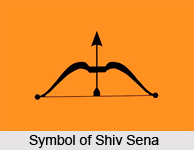 Rashtriya Janata Dal --- Laloo Prasad Yadav is the president of Rashtriya Janata Dal. The party was established in 1997 after Laloo Prasad Yadav broke out from Janata Dal.
Rashtriya Janata Dal --- Laloo Prasad Yadav is the president of Rashtriya Janata Dal. The party was established in 1997 after Laloo Prasad Yadav broke out from Janata Dal.
Rashtriya Lok Dal --- The Rashtriya Lok Dal contested for the 2004 Lok Sabha elections in ally with the Samajwadi party. A handpump is the official electoral symbol of the party.
National Loktantrik Party --- The National Loktantrik Party is closely tied with the Indian National Congress.






